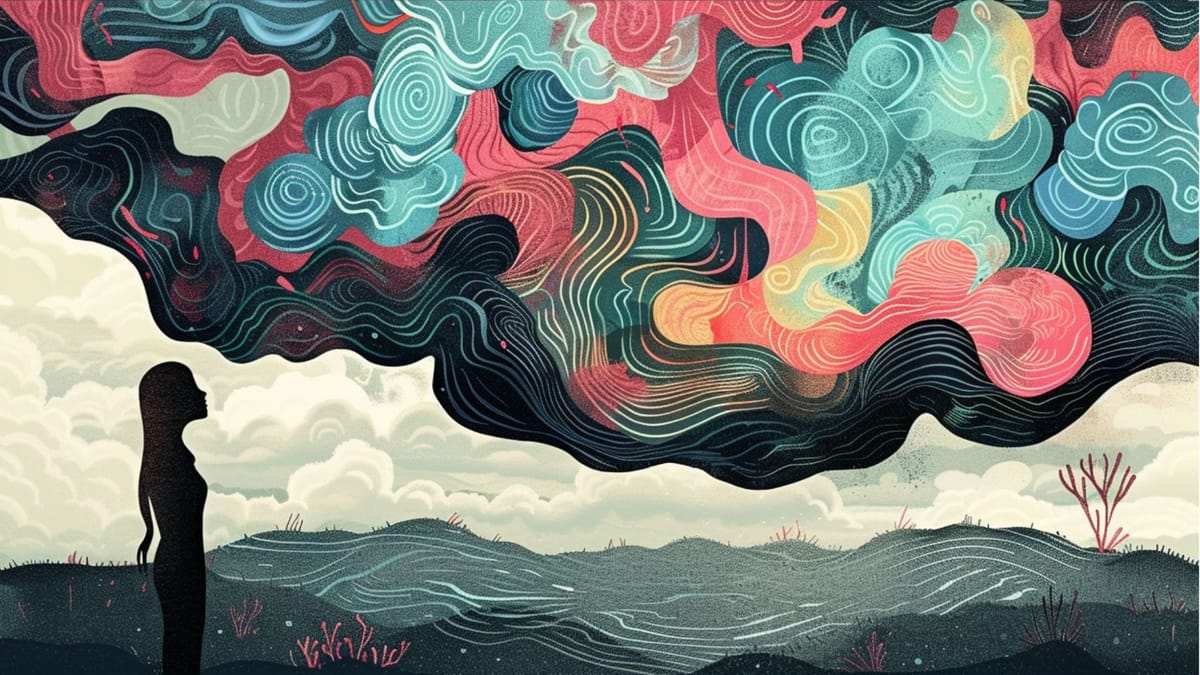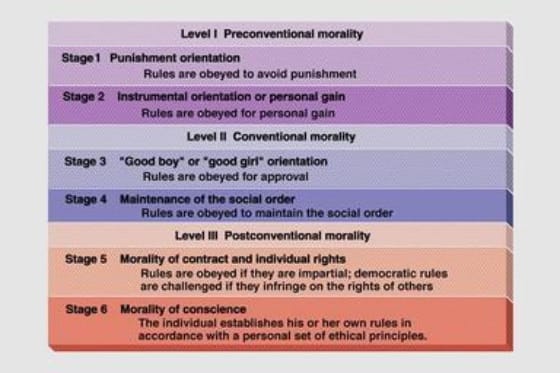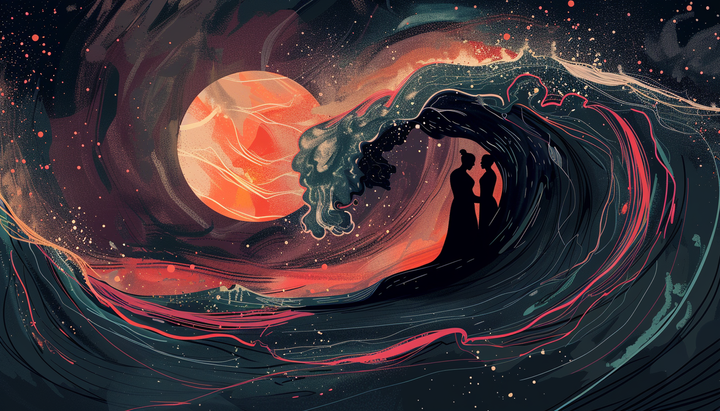On Love

An essay on love by Digvijay Singh, highlighted from the February 2024 essay contest. Join us for future projects and contests in the community forum, with an upcoming writing workshop hosted by novelist Tara Isabella Burton.
I've often thought of morality as an artifact of the prisoner's dilemma. In the past, the best outcome for many situations in community living was achieved via a compromise and what was best for the group. Morality, thus, was shorthand for navigating everyday situations. Don't dirty the well, because there's only one. Help the members of the tribe because they'll protect you in the long run. And so on.
As per capita incomes have increased, ways to isolate yourself from the community have also increased in many ways. Most of us don't see the farmer who grows our veggies, the cooks in the restaurant, the soldiers on our borders and so on. I.e., we no longer have to think of them to make our everyday decisions. The moral quandary you feel now having read this, or the plight of farmers, is in everyday life, subsidized by use of currency. To make everyday decisions, you no longer need it. So, choosing what's best for you or your community, both choices occur through both a rational lens, but also a moral one.
What does all this have to do with love? A few weeks ago, I was rewatching episodes of The Newsroom and Silicon Valley. Will (the news anchor) is on a crusade to do the news the way it's supposed to be done, is working with Mac (his EP, but also his former girlfriend). He’s dating a gossip columnist (who he initially hated but who did a nice thing and so all is forgiven). A couple of episodes later he ends up breaking up with her after she pushes him to appear on a talk show about his light side. Although the actual breakup happens on that episode, you can feel something is off even when they're together on the couch earlier. She doesn't really get him. And he knows it. How? Because of a recommendation she makes. A perfectly rational recommendation in its own right. But it is not the right thing to do. Well, according to who?
In Silicon Valley, Richard's company is in the valley of death when they end up getting a bunch of funding offers after using a clickfarm to drive up numbers (individual actors all were trying to do the right thing but this is what ends up happening). Richard finds out through Jared, and even though they talk (and there's a way out), it seems like Richard is going to take the money at this term sheet meeting with a VC. But he doesn't take it, and ends up telling the truth, even though it means they never will be trusted again. Doing the right thing. Not the rational thing. Again, the right thing according to who?
In many ways, a person is their morality. Because morality itself is the complex culmination of experience, history, childhood, thought, emotion, etc. Morality changes over time, but only in a way that's compatible with one's intrinsic idea of their place in the world (the idea of self, the idea of self in safe and unsafe places).
This sounds a wee bit confusing, so I'll invoke Kohlberg here. Bear in mind that Kohlberg's research focused on cognitive processes and was done on boys. It asserts progress from infancy (stage 1) to adulthood (stage 6) through distinct phases of morality. But it gives us a clue about how morality is both this journey and destination. Journey because you're sort of moving on this ladder, and destination because people generally stop moving. Where one is on this ladder at the time, and if that's their destination, is something we can intrinsically figure out over time, even if we aren't thinking about morality.

Part of Richard's respect for Jared (very different from his respect for Dinesh), for example, comes from Jared's awareness and where Jared is, on this ladder. He knows Jared will be the voice in his head about doing the right thing. Will's respect for Mac, similarly, comes from his and Mac's awareness and where they both are on the ladder. Nina is probably a decent person, but does not possess the same level of morality as Mac. Or Will. And Will cannot shake this feeling off, despite how good the novelty of discourse or the sex is.
Morality represents an invisible metric, where the difference between two people who are in love compounds. And while it is possible and often the case, to move along this ladder through forces of love, we're somehow neurologically attuned to mismatches. Cue: I thought I could change them. You always knew. What exactly? You can't put into words. And yet it is different from loving someone's full self, including their flaws. This, this is a feature. Not a bug. Not a flaw.
Why that happens, I'm not quite sure. Perhaps the lack of a moral code or a lower morality indicates levels of thoughtfulness, or consistency. Perhaps it indicates lesser safety, as if there's no method to madness. It is harder to decipher what someone will preserve or stand for (self, justice, family, discipline, wealth or something else). In so far as love allows us to see the world through someone else's eyes, I personally feel having similar morality allows you to rebel, but without descending into hate. And that kind of love, expands you, because it finds you, including the limits of your morality.
And that is the point. To love someone is to find, test, and come to terms with your own morality. Because no matter how much dopamine and information floods your brain, someone inside you will know theirs.
The End.
PS: I would like to point out the prisoner's dilemma is a very simple and often a sub-game, and you shouldn't probably go around asking people their choices. But then again, your brain will probably figure it out.



